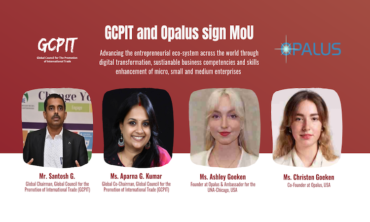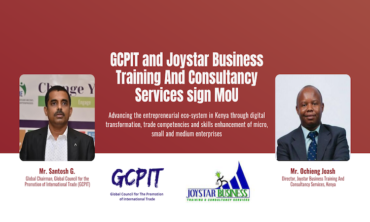Unlocking the Potential of Global MSMEs
Global Council for the Promotion of International Trade is an organisation based out of India, South Africa, USA, UAE, EU and the United Kingdom with board & council member representation across the world :
The major responsibilities of the GCPIT include:
- implement relevant major national development strategies, and promote foreign trade, bilateral investment and economic & technological cooperation; carry forward cooperation with overseas trade promotion counterparts; receive overseas high-end trade and economic delegations.
- organize global trade and economy delegations to visit foreign countries; manage overseas trade exhibitions organized by GCPIT, participate in affairs of World Expo on behalf of the GCPIT; organize for companies to attend trade and economic exhibitions, forums, fairs and other international conferences; represent domestic industry and commerce in the field of foreign trade, and participate in the formulation of trade and economic policies and rules, foreign trade negotiation and making of international commercial rules; carry out legal consulting, commercial conciliation , trade and maritime arbitration; sign and issue certificates of origin for export products and among others.
- certificates and documents related to foreign trade, provide intellectual property services such as patent application, trade mark registration, litigation and rights safeguarding; organize industries and enterprises to cope with trade disputes; provide trade and economic information, training services etc.
The GCPIT will establish wide connections with relevant international organizations, trade & investment promotion agencies, commercial associations and business circle, to organize various forms of communication and cooperation. It is committed to enhancing services for companies and making positive contributions to development of bilateral and multilateral trade relationships, promotion of world economic prosperity and improvement of the well-being of all mankind.
Global Council is intended to serve the global community through it’s knowledge, awareness, handholding, ideation, innovation, cross boarder businesses, global networking and trade.




















